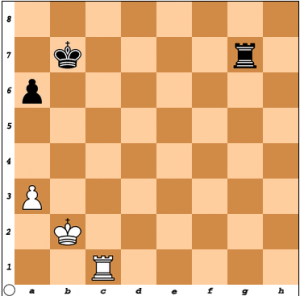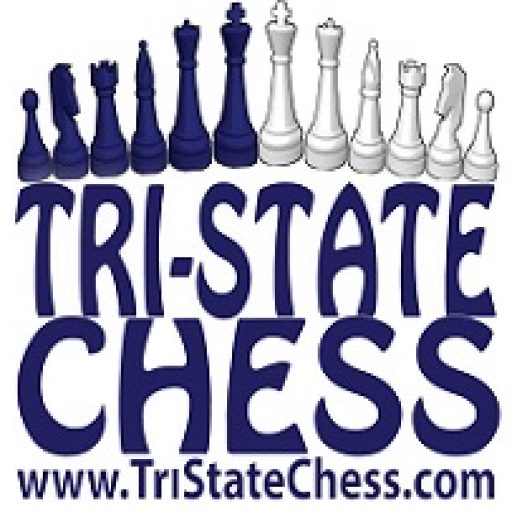You Make The Call
You Make The Call
By Mark Kurtzman.
 In the diagram below, the game appears drawn. In almost all cases, when serious tournament players compete, they agree to a draw when there are no winning chances.
In this game, however, it was the final round of an important championship tournament. And there was a lot of prize money at stake…$7,600 to the winner!
Everything seems equal, except White had 1 minute left on the clock in sudden death and black had almost 2 minutes.
Black played Rg2+ in this position. White replied with Rc2 hoping for a rook trade, but black played his rook back to g7. The position continued with similar rook moves being played by both sides leading nowhere. White, realizing he would lose the game on time if this would continue, started saying "draw, it's a draw." Black said nothing and did not acknowledge his opponent. The Chief Tournament Director then appeared to observe the final moves of the game. They continued to play and when white realized he had only seconds left, he started to scream, "Draw, you can't win this position. It's a draw!" The opponent continued to play and the White player turned to the tournament director expecting him to intervene, but he did not. White's flag fell and he lost the game on time and the $7,600 prize as well. Is this fair? You make the call…
In the diagram below, the game appears drawn. In almost all cases, when serious tournament players compete, they agree to a draw when there are no winning chances.
In this game, however, it was the final round of an important championship tournament. And there was a lot of prize money at stake…$7,600 to the winner!
Everything seems equal, except White had 1 minute left on the clock in sudden death and black had almost 2 minutes.
Black played Rg2+ in this position. White replied with Rc2 hoping for a rook trade, but black played his rook back to g7. The position continued with similar rook moves being played by both sides leading nowhere. White, realizing he would lose the game on time if this would continue, started saying "draw, it's a draw." Black said nothing and did not acknowledge his opponent. The Chief Tournament Director then appeared to observe the final moves of the game. They continued to play and when white realized he had only seconds left, he started to scream, "Draw, you can't win this position. It's a draw!" The opponent continued to play and the White player turned to the tournament director expecting him to intervene, but he did not. White's flag fell and he lost the game on time and the $7,600 prize as well. Is this fair? You make the call…
27th National Chess Congress
Philadelphia, PA
December 20, 1996
This game clearly should have been a draw, in which case both players would have received a little over $5000 sharing 1st and 2nd place.
Even though the tournament director was observing, it was at his discretion whether or not to intervene and call the game a draw. In fact the only way White could have guaranteed the draw, would have been to make an official claim which requires White to stop the clock! Once the clock is stopped, the player can then make a claim to the tournament director, and the director will then rule on whether or not the claim will be upheld.
Since White never stopped the clock, he never officially made a claim, and had to watch the final seconds slip away on his clock without any recourse.
It was an expensive lesson!
Copyright © 2013 Tri-State Chess. All Right Reserved.

